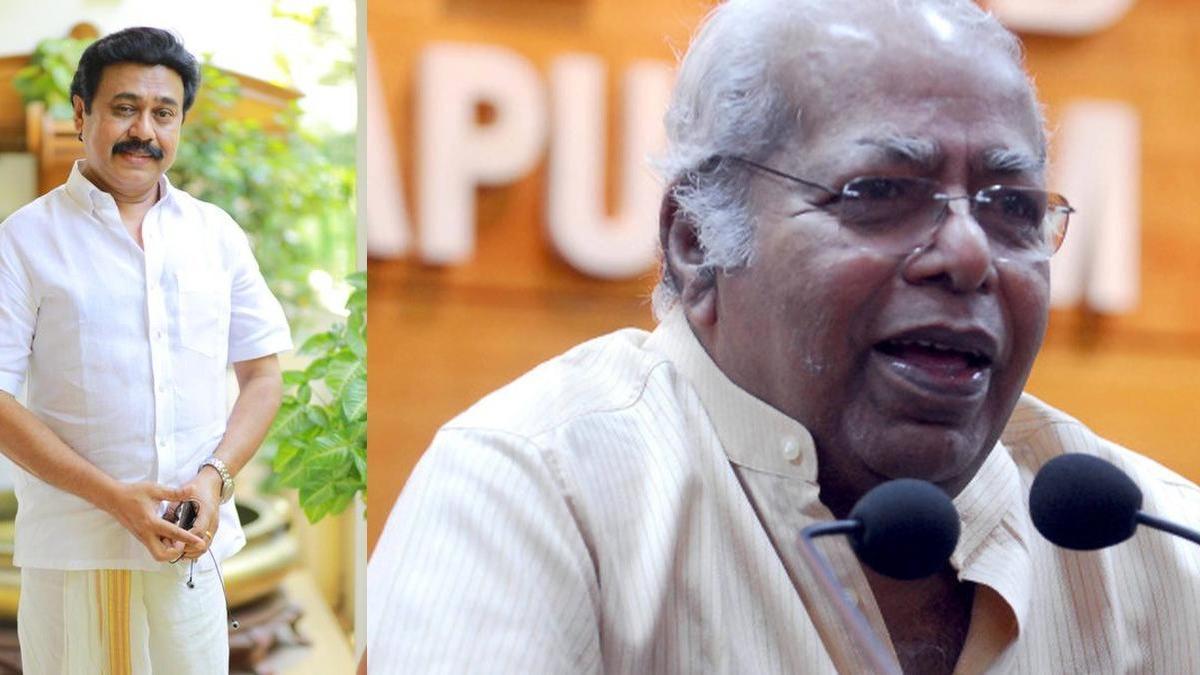
The recent publication of the Hema Committee report has stirred the pot in the Malayalam film industry, stirring up long-forgotten controversies and highlighting simmering discontent within the community. Though the names were redacted, the report shed sufficient light to rekindle memories of past grievances, pushing long-hidden skeletons out of the closet.
The report, while refraining from naming individuals directly, notably references the struggles faced by the late actor Thilakan and filmmaker Vinayan. It also alludes to the disbandment of the Malayalam Cine Technicians’ Association (MACTA), allegedly orchestrated through the influence of a star. Following the report’s release, historic videos of Thilakan accusing the Association of Malayalam Movie Artists (AMMA) of ostracizing him from the industry resurfaced, rapidly spreading across social media platforms.
The Hema Committee report lays bare the issue of sexual exploitation within the Malayalam film industry, igniting a political tempest that has thematized the discourse, deeply impacting the ruling Left Democratic Front (LDF) government. The government has shifted the onus onto the panel, citing its inability to initiate legal actions. Matters did not ease as the Kerala High Court dismissed an actor’s appeal challenging a single judge’s decision to make the report public. The Opposition has consequently amplified their demands for a thorough police investigation into the criminal activities documented by the report, creating further friction.
Both the AMMA and the broader film industry have responded to the revelations with caution, demanding time to review the findings comprehensively. However, the storm set off by the committee’s conclusions refuses to abate.
On Tuesday, Vinayan and Sonia Thilakan, daughter of the late actor, took to the public stage to strongly condemn the power dynamics controlling the industry. Sonia Thilakan proclaimed that her father’s allegations and sentiments had been validated by the report. She also recounted a distressing incident where a prominent actor contacted her under the guise of an apology for her father. He requested that she join him in his room to discuss the matter privately. Upon questioning the necessity of such a meeting, his subsequent messages clarified his inappropriate intentions.
.
“If someone unattached to the industry endures this, one can only imagine the plight of actresses and junior artists,” Sonia expressed to the media. She condemned AMMA’s inability to respond convincingly after the report’s release, contrasting it to their swiftness in ousting her father. “I will name the 15-member power group controlling the industry if the committee decides to proceed,” she declared.
Beyond personal grievances, the report highlights the case of an actor who accepted ₹40 lakh from a producer but failed to honor his commitment to act in the projected movie for three years. He only agreed to continue under the stipulation that the director be replaced. MACTA opposed the actor’s stance, leading to mass resignations from within their organization, driven by the actor’s clout among several writers, cameramen, technicians, and directors. Subsequently, a parallel union, the Film Employees Federation of Kerala (FEFKA), was established with the backing of the industry’s influential power group. This new union wielded significant influence, ensuring that no one collaborated with the aforementioned director, who later sought and won a favorable judgment from the Competition Commission of India. Consequently, penalties were levied against both AMMA and FEFKA.
Vinayan, identified in the report, recounted the 2008 conspiracy by the industry leaders, orchestrated in a Kochi hotel, to dismantle MACTA. He contended that MACTA, created to empower junior artists to confront industry heavyweights, was systematically obliterated. In its place, FEFKA emerged, closely aligning with the power centers. “This marked the genesis of the anarchistic and bullying culture that subsequently flourished in the industry,” Vinayan remarked. He recounted his own experience of being banned for 12 years merely for rallying against the authoritarian group, mentioning a currently serving Minister as part of the 15-member cohort.
Amid the escalating tensions, both Sonia Thilakan and Vinayan have urged the state government to take definitive action based on the report’s conclusions, stressing the urgency of systematic redressal to restore integrity within the Malayalam film industry.












